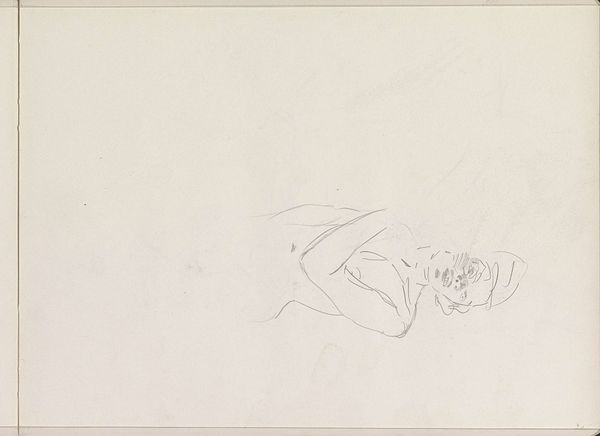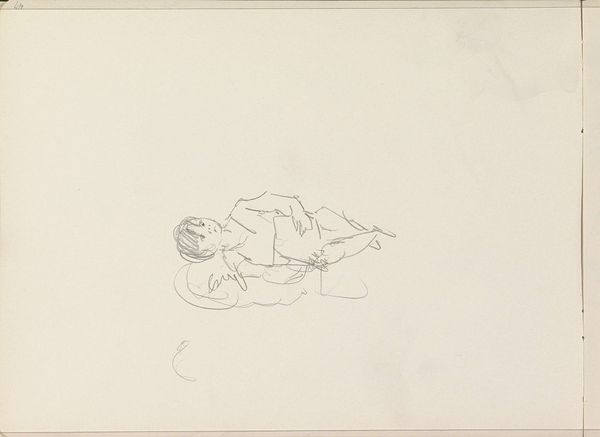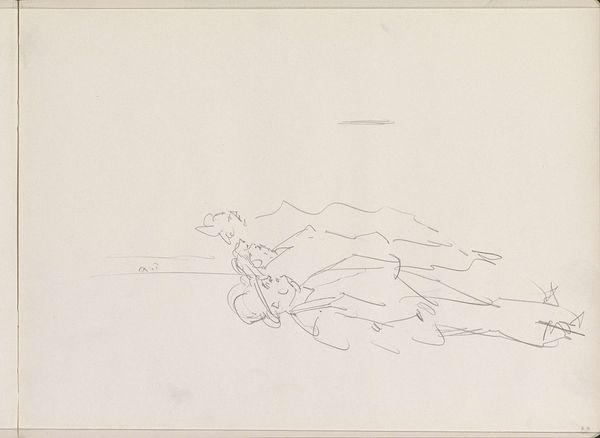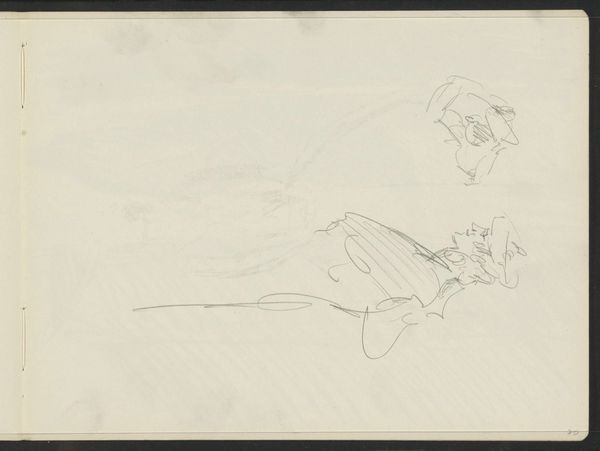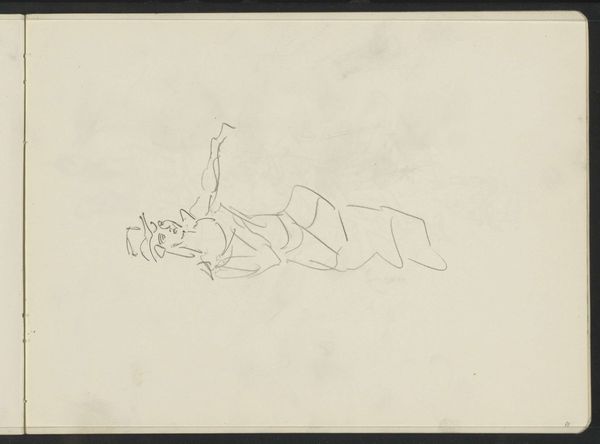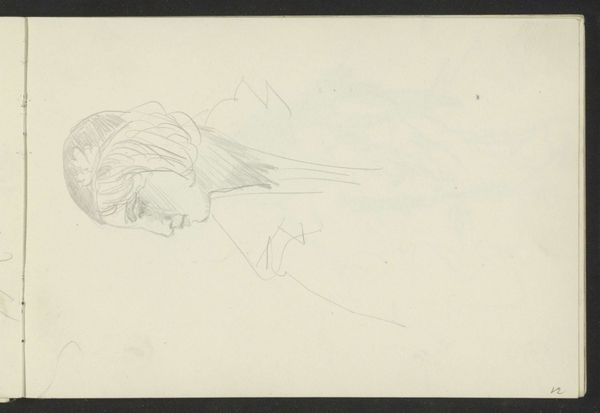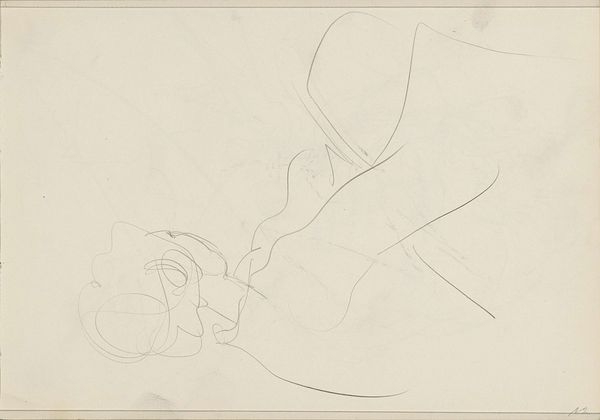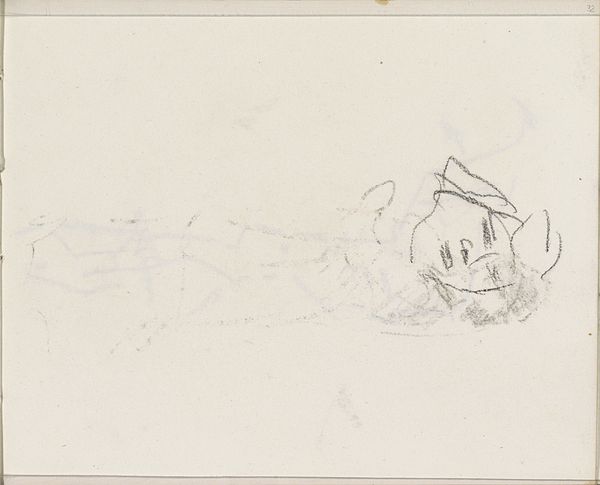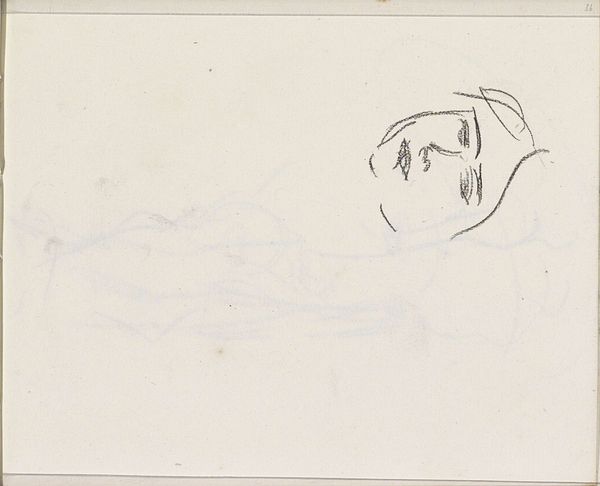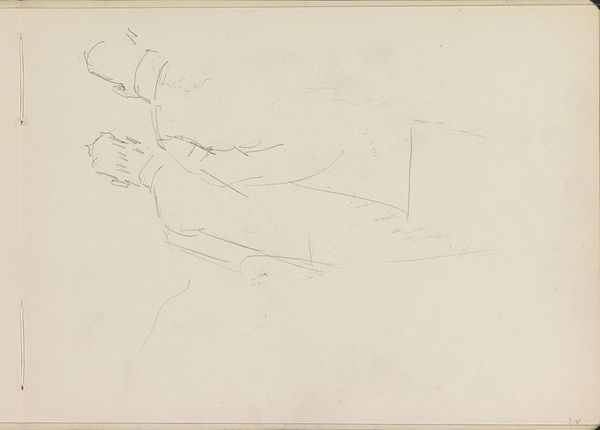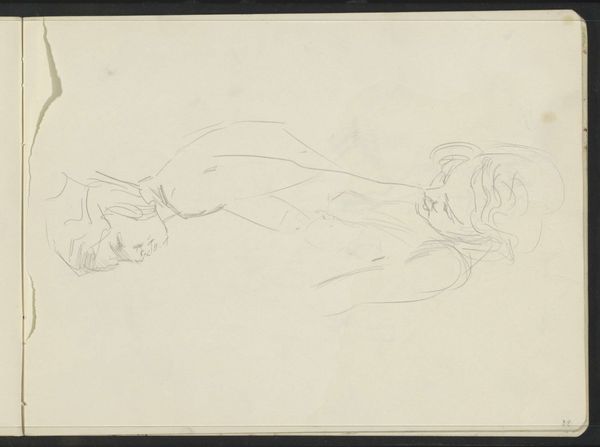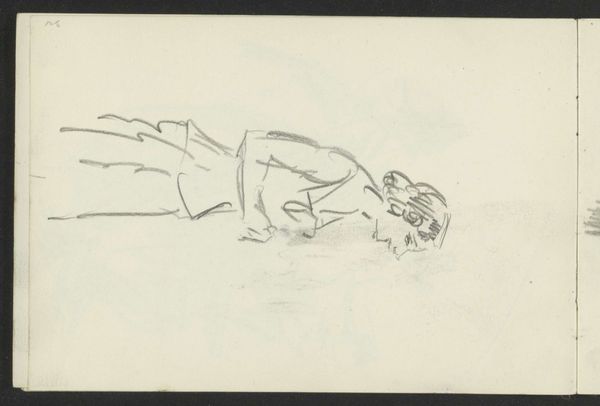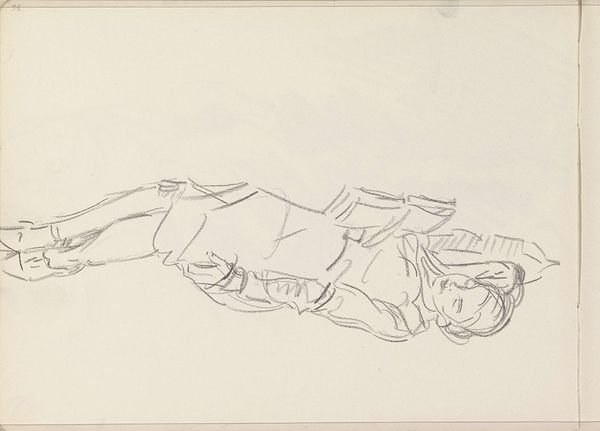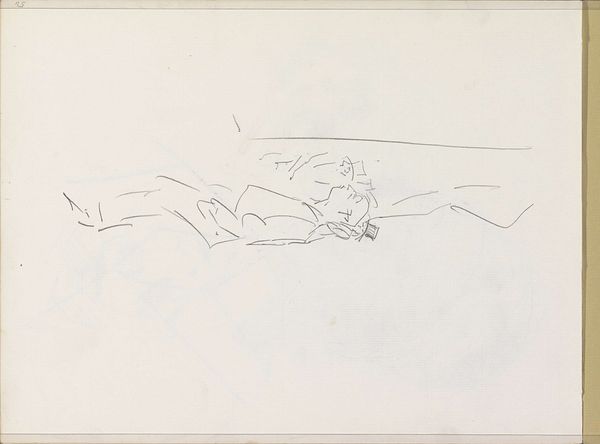
drawing, pencil
#
drawing
#
amateur sketch
#
light pencil work
#
thin stroke sketch
#
incomplete sketchy
#
figuration
#
personal sketchbook
#
idea generation sketch
#
sketchwork
#
ink drawing experimentation
#
pencil
#
sketchbook drawing
#
nude
#
realism
#
initial sketch
Copyright: Rijks Museum: Open Domain
Curator: Here we have Isaac Israels' "Reclining Female Nude," a pencil drawing that was created sometime between 1875 and 1934. Editor: My first impression is that this drawing feels so light, almost tentative. The lines are so delicate, like a whisper on paper. Curator: Precisely. Note the artist’s technique, that delicate, thin stroke sketch creating a soft contour around the figure. It's less about defining absolute form and more about capturing the suggestion of shape. The artist coaxes form from the void with tonal economy. Editor: It definitely brings to mind classic depictions of Venus. The female nude, reclining—it’s a timeless trope that's seeped into our collective visual memory, representing ideals of beauty and repose. How do you see the history of such depictions informing our understanding of this sketch? Curator: That history absolutely informs our reading, but I'm equally struck by the abstraction at play. Consider how the artist implies depth, focusing less on details and more on the proportional relationship between the limbs, the torso, and head. The overall organization of these parts is what generates visual interest and, yes, that reclining trope, but stripped to its skeletal structure. Editor: True. The lines barely there, create a tension between presence and absence, reality and etherealness. The ambiguity in such works prompts the viewer to participate in the act of defining and interpreting the scene. Do you get the sense that the personal style or any emotional context adds meaning here? Curator: What I find captivating is the emphasis on pure form and the mechanics of composition—we're drawn into appreciating how an image comes into being. It's a study of visuality itself! Editor: Absolutely. What might initially appear to be a simple study holds multiple layers of meaning tied to cultural history. Thank you for the formal analysis. Curator: And thank you, for your insight on what cultural connotations add to our deeper understanding of this composition!
Comments
No comments
Be the first to comment and join the conversation on the ultimate creative platform.
